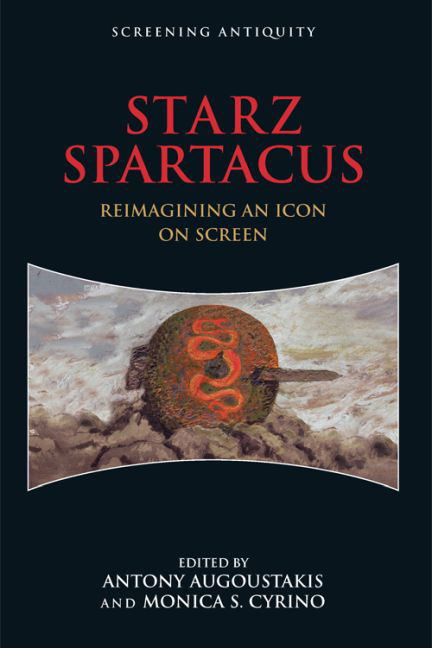Book contents
- Frontmatter
- Contents
- Series Editors' Preface
- Editors' Acknowledgments
- Contributors
- List of Illustrations
- Episode Listing
- Introduction: Reimagining a New Spartacus
- PART I HEROES AND HEROISM
- PART II SOCIAL SPACES
- PART III GENDER AND SEXUALITY
- PART IV SPECTACLE AND VIOLENCE
- 11 Base Pleasures, Spectacle, and Society
- 12 Draba's Legacy and the Spectacle of Sacrifice
- 13 Violence and Voyeurism in the Arena
- Filmography
- Bibliography
- Index
13 - Violence and Voyeurism in the Arena
from PART IV - SPECTACLE AND VIOLENCE
Published online by Cambridge University Press: 27 April 2017
- Frontmatter
- Contents
- Series Editors' Preface
- Editors' Acknowledgments
- Contributors
- List of Illustrations
- Episode Listing
- Introduction: Reimagining a New Spartacus
- PART I HEROES AND HEROISM
- PART II SOCIAL SPACES
- PART III GENDER AND SEXUALITY
- PART IV SPECTACLE AND VIOLENCE
- 11 Base Pleasures, Spectacle, and Society
- 12 Draba's Legacy and the Spectacle of Sacrifice
- 13 Violence and Voyeurism in the Arena
- Filmography
- Bibliography
- Index
Summary
In describing the level and quality of violence in the first season of the STARZ series Spartacus, show creator Steven S. DeKnight emphasized the appeal of the network's invitation to develop an “R-rated action series” and “unleash the violent part” of the hero's legend. He further clarified the show's representation of violence in an online interview:
We often say we take the Spartacus legend, we turn it on its side, and we beat the crap out of it. It is bloody and brutal. This was a very brutal time. The Romans had a completely different view of violence than we do. They were brought up that flinching away from blood and violence was a sign of weakness.
This chapter explores the different forms of violence presented in the series, with special emphasis on its attempt to distinguish between retributive violence, motivated by a cause perceived as just, and exploitative violence, enacted primarily for its value as entertainment. We consider discourses of retributive violence in STARZ Spartacus initially as a departure from representations of violence in Stanley Kubrick's Spartacus (1960). We then turn to examine how recently developed cinematographic techniques encourage viewers of the series to adopt various – often competing – perspectives on bloodshed, perspectives that result in viewer identifications that are better understood through internet tracking of responses to egregious acts of violence represented in the series. In order to garner viewer responses, we analyzed online reviews posted on IMDb, and also obtained comments directly from viewers via an online survey and face-to-face questionnaires and interviews. Links to the online survey were posted to Spartacus fan sites, and face-to-face feedback was received following a public screening of the episode “Libertus” (episode 5 of the prequel season, Gods of the Arena) at University College London in 2014, and from a viewing group of five women who watched the first season, Blood and Sand, together in 2010.
Throughout this discussion we evaluate what characters in the series have to say about the appropriate application of violence, and also consider scenes in the final season that engage with discourses of violence in the 1960 film.
- Type
- Chapter
- Information
- STARZ SpartacusReimagining an Icon on Screen, pp. 211 - 228Publisher: Edinburgh University PressPrint publication year: 2017



